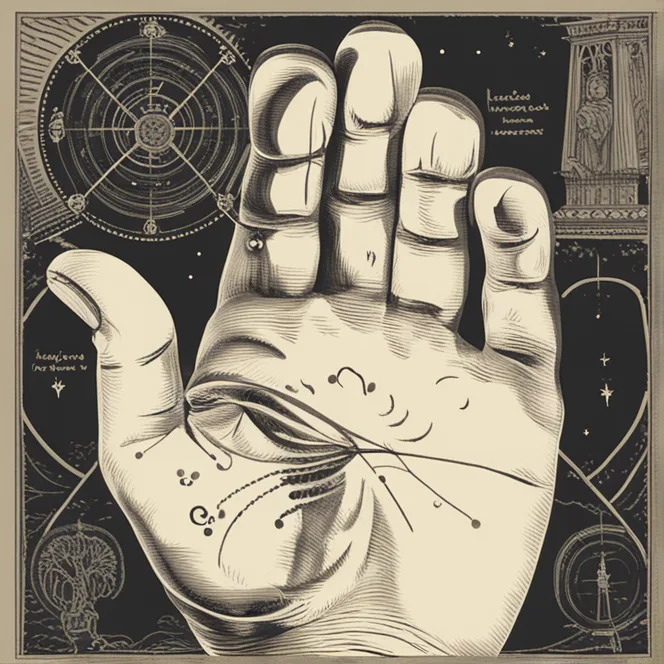
Starting Your Journey In Hand Reading
Explore the art of palmistry with our beginner's guide to hand reading. Unveil the hidden aspects of your personality and destiny.
article by Nora Pennington
Palmistry, or chiromancy, has been a tool for divination and character analysis for centuries, practiced across various cultures. By examining the lines, shapes, and features of the hands, palmists believe they can interpret a person's character traits, life experiences, and even predict future events. Although skepticism surrounds its validity, many find value and insight in the art of hand reading. This guide will familiarize you with the basics of palmistry, allowing you to glimpse into its captivating world.

The Lines of Life, Heart, and Head
The three primary lines that most palmists first observe are the life, heart, and head lines. The life line, which curves around the base of the thumb, is believed to reflect vitality, major life changes, and physical endurance. The heart line, running horizontally across the upper palm, is associated with emotional stability, romantic perspectives, and cardiac health. Meanwhile, the head line, situated below the heart line, is indicative of intellectual leanings, communicative skills, and decision-making approaches. The depth, length, and clarity of these lines are each said to bear significant meanings in one's reading.
Unfolding the Mystery of Minor Lines
Beyond the three dominant lines, lesser-known lines also provide intriguing insights. The fate line, though not present in every hand, is linked to life path and career success. The sun line suggests potential for fame or scandal, while the mercury line speaks to communicative abilities and business acumen. These lines may appear faint or fragmented, but each variance carries its symbolism in the tapestry of palmistry. Interpreting their interactions can paint a more nuanced picture of an individual's journey.
Palm Shapes and Finger Analysis
Hand shape is categorized into the elements: Earth, Air, Fire, and Water, each correlating with distinct temperaments and dispositions. Earth hands are characterized by broad palms and short fingers, suggesting practicality and stability. Air hands feature square palms with long fingers, denoting intellectualism and curiosity. Fire hands are identified by long palms and short fingers, reflecting enthusiasm and impulsiveness. Water hands have long palms and long fingers, revealing sensitivity and intuition. Analyzing finger length, shapes, and phalanges offers additional layers of personality insights.

The Significant Mounts of the Palm
The mounts, or raised pads of flesh, are named after celestial bodies and correspond with different attributes. The mount of Venus, near the thumb, represents love and passion. The mount of Mars, divided into the inner and outer sections, connects to aggression and courage. The mount of Jupiter, under the index finger, indicates ambition and leadership. Meanwhile, the mounts of Saturn, Apollo (or Sun), and Mercury beneath respective fingers tie to wisdom, artistic talent, and communication skills. The lunar mount relates to imagination and intuition. Their prominence can signal strong or overbearing qualities of these traits.
Incorporating Intuition and Skepticism
Palmistry is an interpretive art, and like any form of divination, requires a balance of intuition and skepticism. While hand reading can give us interesting perspectives or reaffirm beliefs, it's crucial to approach the practice with an open mind and a critical eye. Palm readings are not definitive narratives of one's life but can serve as contemplative tools and provide a medium for introspection and self-discovery. Remember, your life is not written in stone, and the lines on your palm are just one of many aspects that make up your unique story.
Published: 12/13/2023
Modified: 12/13/2023
More predictions
Come back here soon to learn more about yourself and your future


Deciphering Destiny: The Art Of Palmistry
Explore the intricate world of palmistry and uncover the hidden meanings behind the lines and features of your hands.


Engagement Ring Traditions: Hand & Finger Choice
Decipher the customs behind selecting the correct hand and finger for an engagement ring, influenced by traditions and modern styles.